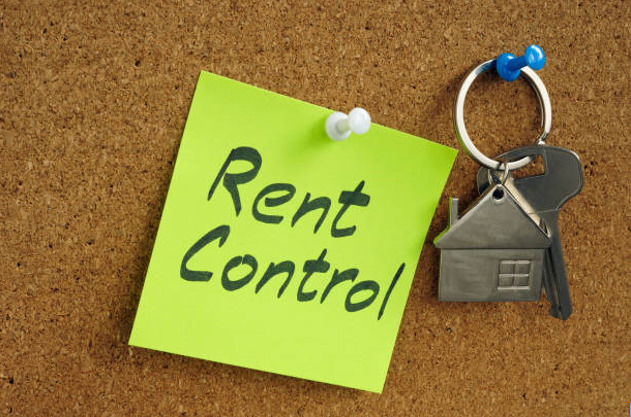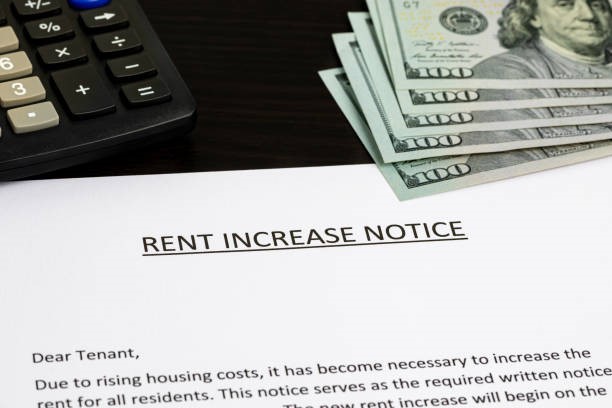Top 3 Consequences Of Rent Control For Landlords And Tenants

With rent prices skyrocketing over the past few years in most cities, it’s easy for an investor to assume that market forces alone determine property prices. While that’s mostly true, investors must weigh other policies and factors before quoting a price.
One of such factors landlords should consider includes rent control policies, which are laws intended to stabilize housing costs. Since they dictate how much properties can be listed for on the open market, they have significant consequences for landlords and tenants. Thus, as an investor, one of the best tips for renting would be understanding its complex dynamics.
This article delves into the top three consequences of rent control for landlords and tenants. From the impact on landlords’ income and property maintenance to the potential implications for tenant mobility and housing availability, we explore how rent control measures can shape the housing landscape, so stick around till the end.
What Is Rent Control?
Rent control is a set of government regulations or policies that limit the amount by which landlords can increase the rent on residential properties within a specified area and timeframe. The primary goal of rent control is to protect tenants from unreasonable rent increases and provide affordable housing options. After all, without such laws, property owners can collude to hike rent prices, forcing renters out of their homes without warning and discouraging prospective home searchers.
Under rent control, guidelines or laws typically restrict the frequency and percentage of rent increases. These regulations vary widely by location and can include factors like the occupancy date, the property’s age, and its existing rent level.
Rent control can have implications for both landlords and tenants. While it aims to make housing more affordable and stable for tenants, it can also impact landlords’ ability to cover property expenses and generate a reasonable return on their investments. As a result, rent control policies often spark debates about their effectiveness and long-term consequences. You can discuss fair rental rates with a rental property manager in Baltimore to ensure you find the middle ground between profit and fairness.
Difference Of Rent Control Vs Rent Stabilization
Rent control and rent stabilization are both government regulations aimed at controlling rent increases in residential properties, but they differ in several key ways:
Scope Of Regulation
Rent Control: Rent control typically imposes stricter and more comprehensive regulations on rent increases. It often applies to older properties and can limit the rent a landlord can charge even after a tenant moves out.
Rent Stabilization: Rent stabilization tends to be less restrictive than rent control. It often applies to newer properties and allows landlords to charge market-rate rents when a tenant moves out, but it limits the rental increase while a tenant remains in the unit.
Rent Increase Limits
Rent Control: In rent control areas, the government may heavily regulate rent increases and, in some cases, freeze them at a specific rate. Despite the importance of rent control, such actions can make it challenging to raise rents, even in response to rising property costs.
Rent Stabilization: Rent stabilization allows for controlled rent increases, usually tied to the local inflation rate. These increases are typically higher than under rent control.
Tenant Protections
Rent Control: Rent control often offers stronger protections to tenants, including the right to renew a lease and restrictions on evictions. It may also limit the reasons for removal.
Rent Stabilization: While tenants in rent-stabilized units still enjoy protections, these protections may be less comprehensive than rent control.
Applicability
Rent Control: Rent control is less common and tends to appear in specific municipalities or cities. It often applies to properties built before a particular date.
Rent Stabilization: Rent stabilization is more prevalent in various cities and regions. It may apply to a broader range of properties, including some newer constructions.
The specific regulations and rules governing rent control and rent stabilization can vary significantly from one jurisdiction to another. It’s crucial for landlords and tenants to understand the particular laws in their area to know what protections or limitations apply to their rental situation.
If you live in Sacramento, it’s especially important to be aware of the local housing rental assistance Sacramento that can provide valuable support and resources. These programs can offer financial aid, counseling, and guidance to tenants facing difficulties, ensuring access to affordable housing options.
Top 3 Consequences Of Rent Control For Landlords And Tenants
For Landlords
Reduced Rental Income
Rent control often limits the amount by which landlords can increase rents. These laws can result in landlords receiving lower rental income than they might charge in a free-market rental. Over time, this reduction in income can affect their ability to cover property expenses and make necessary investments.
Maintenance And Investment Challenges
With limited income from rent, landlords may face challenges in maintaining and improving their properties. Such financial restrictions could lead to a decline in the overall condition of rental units and impact tenant satisfaction.
Limited Flexibility
Rent control regulations can limit landlords’ flexibility in managing their properties. They may have difficulty adjusting rents to account for rising property taxes, maintenance costs, or inflation. Additionally, some rent control policies make it challenging to remove problem tenants or make necessary renovations.
For Tenants
Affordability Benefits
The primary benefit for tenants under rent control is increased housing affordability. Capping rent increases provides tenants with more predictable housing costs and protection against sudden, steep rent hikes.
Stability And Security
Rent control policies can provide tenants greater housing stability and security. They may have the right to renew leases and protections against unjustified evictions, contributing to a more secure living environment.
Potential Supply Constraints
While rent control benefits existing tenants, it can lead to reduced incentives for landlords to invest in or create new rental properties. This policy can result in a limited rental housing supply, potentially making it more challenging for newcomers to find affordable rental units in the affected area.
Conclusion
In conclusion, rent control is a housing policy with far-reaching consequences for landlords and tenants. For landlords, it often means reduced rental income, maintenance challenges, and limited flexibility in managing their properties. On the other hand, tenants may benefit from increased housing affordability, stability, and security in their homes.
However, rent control policies can also lead to potential supply constraints and impact the availability of rental housing. The specific outcomes can vary based on the stringency of regulations and local market conditions. Rent control remains a topic of ongoing debate, highlighting the complex trade-offs between tenant protections and property owners‘ interests in affordable housing. If you’re an investor, having a property manager on your team can be beneficial. An expert who understands local rental laws can offer great advice on navigating the complexities of setting fair rent that doesn’t compromise profitability, increasing your business’s chances of success.
Read Also:



























